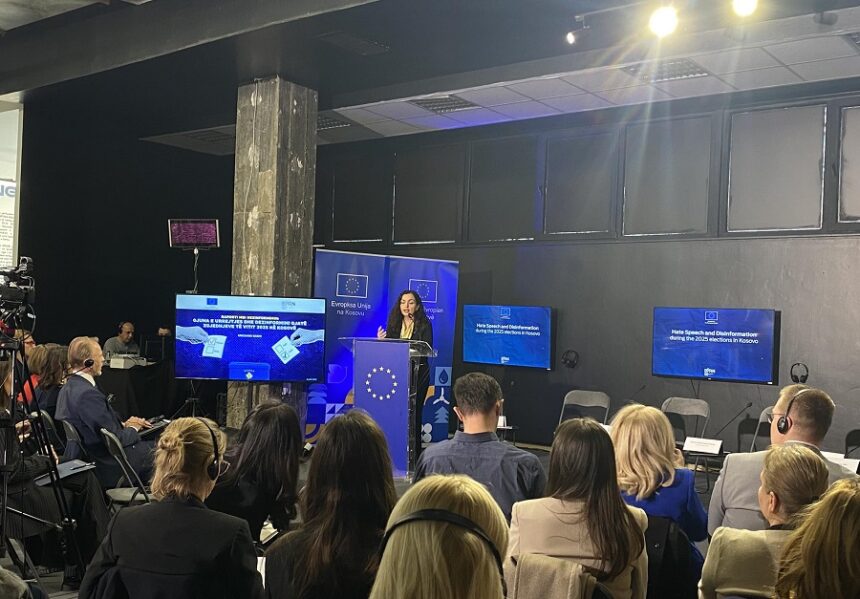The European Union Office in Kosovo and the Balkan Investigative Reporting Network (BIRN) have released a report on hate speech and disinformation during the February 9 parliamentary elections in Kosovo. The report sheds light on how disinformation was spread, not only by local political actors but also by external forces aiming to destabilize public trust in Kosovo’s electoral process.
On International Fact-Checking Day, Aivo Orav, Head of the EU Office in Kosovo, emphasized that disinformation is more than just misleading content—it represents a direct threat to the core of democracy itself. He pointed out that anyone can become a target of information manipulation, adding that disinformation campaigns undermined public confidence in the election process.
Orav further highlighted that the report identifies disinformation narratives promoted by both local and external actors, specifically pointing to Serbia and Russia. These external forces, according to Orav, are seeking to disrupt the democratic process in Kosovo and escalate tensions in the region.
Kosovo President, Vjosa Osmani, also addressed the growing threat of disinformation, stressing that it’s not just a challenge, but a real danger to the state. She noted that citizen journalism, aided by technology and artificial intelligence, has made fact-checking more difficult, while encouraging the public not to be manipulated. Osmani emphasized that without truth, Kosovo cannot have a true democracy or a successful society.
She also pointed out that Serbia and Russia have actively promoted disinformation to destabilize Kosovo’s democratic process and incite tensions in the region.
Key findings of the report, presented by Kreshnik Gashi from BIRN Kosovo, indicate that hate speech and disinformation were prevalent during the elections, with a notable presence of Russian and Serbian influence. The use of social media to amplify hate speech and false narratives was widespread. The report also mentioned a rise in the use of artificial intelligence for disinformation purposes, as well as low transparency in campaign financing.
The findings underscore that Kosovo’s February elections were marked by an increase in the use of digital platforms to spread hate speech and disinformation, with external actors fueling these narratives to weaken Kosovo’s democratic processes.







